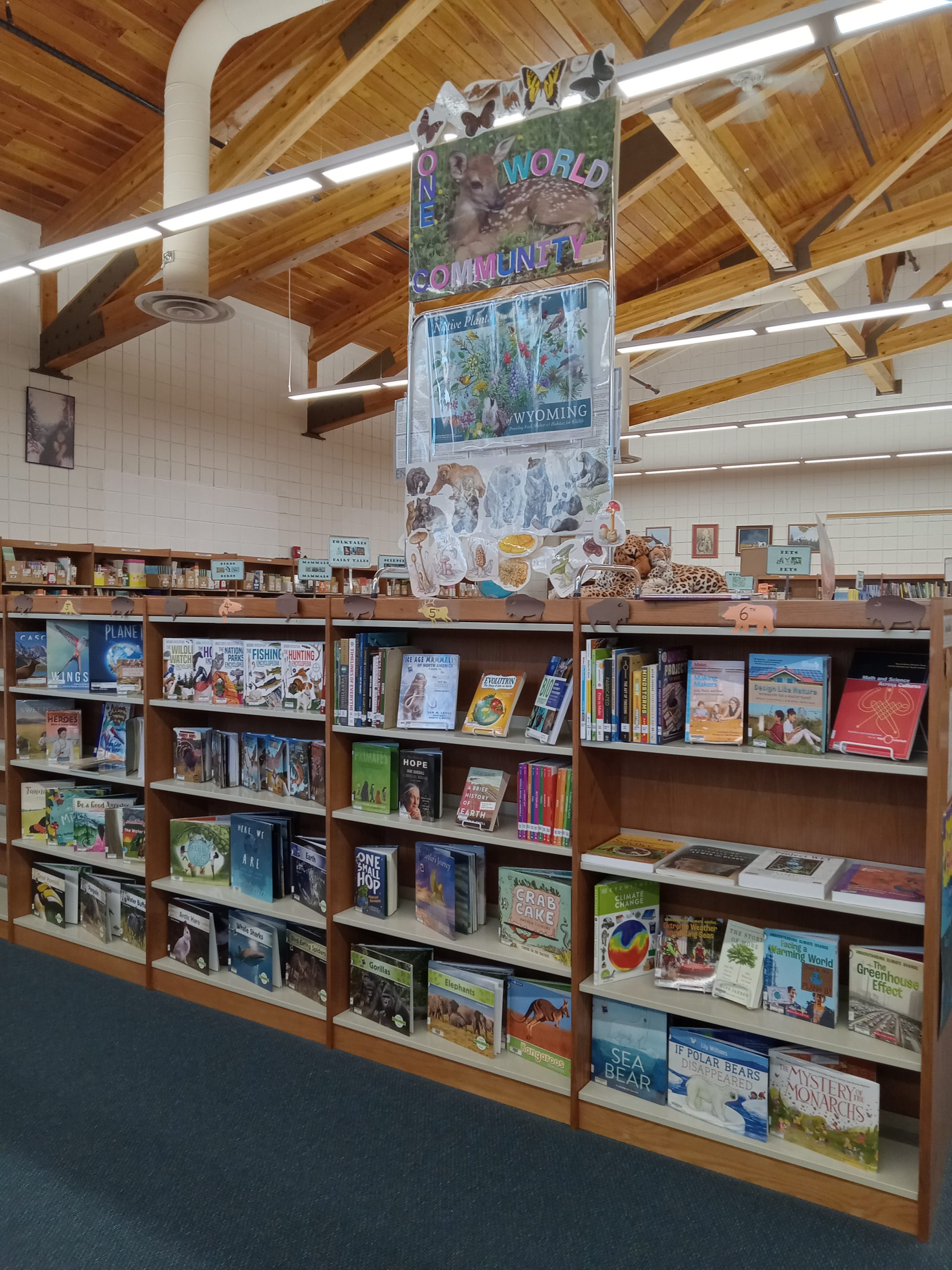Students living in rural and tribal communities are surrounded by a remarkable range of biodiversity: Grasses, flowers and wildlife are centerpieces of these youths’ lives.
A display at the Fort Washakie School and Community Library located in Fort Washakie, Wyoming, part of the Wind River Indian Reservation. The library primarily serves the Eastern Shoshone Native community. Photo courtesy Robin Levin, school and community librarian.
But systemic factors like geographic isolation, high poverty rates and sparse educational resources often minimize their opportunity to explore the natural environment, thwarting a pathway to future STEM education and careers.
Nebraska researchers are partnering with Midwestern and Southwestern communities to develop models of informal biodiversity education for middle school youth in tribal and rural communities. By increasing local libraries’ biodiversity-related resources and enhancing STEM programming, the team is sparking students’ interest in biodiversity and opening the door to STEM degrees and jobs.
The team, led by Brad Barker of Nebraska Extension, also aims to develop shared understanding of biodiversity’s crucial role in maintaining the supply of clean water, food, medicine and protection against extreme weather.
A $1.2 million grant from the National Science Foundation supports the work.
At the heart of the project is the concept of co-creation. The team collaborates closely with local youth leaders and library staff to meet the unique needs of each community.
“We are hoping to not only see how Western science approaches biodiversity, but also to learn about and incorporate Indigenous perspectives,” said Barker, a 4-H science and technology specialist. “We’re trying to bring those together so there is one vision.”
Erica DeFrain and Judy Diamond of University Libraries lead partnerships with local libraries, helping them acquire high-quality resources on biodiversity, particularly books by Indigenous authors. Multiple libraries have launched displays showcasing the new resources.
Barker is working with community leaders on strategies to embed biodiversity-related elements into existing youth programs. One goal is to launch makerspaces – hubs of art and innovation that house cutting-edge equipment – in some of the partnering communities.
The team has presented its work to the Nebraska Commission on Indian Affairs, which is helping to share books about biodiversity with tribal communities. The team includes Husker researchers Chad Brassil, John Benson, Michelle Krehbiel, Molly Brandt, Gabriel Bruguier, Erica DeFrain, Aaron Sutherlen and Trish Wonch Hill.
